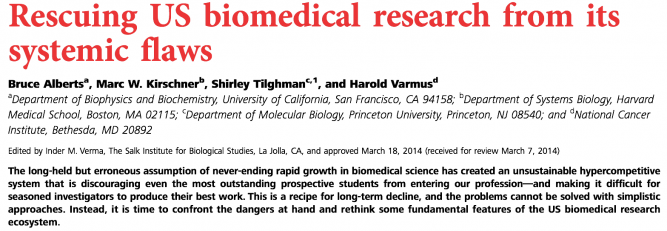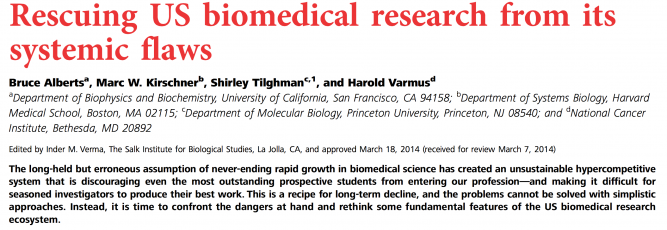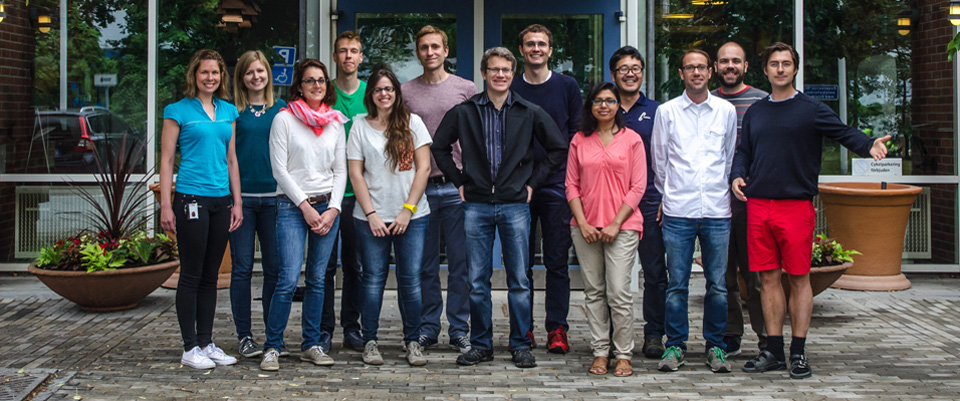Blog Tag funding
Falling behind: postdocs in their thirties tire of putting life on hold
This one hits home. As someone who did 4 postdocs in 3 different countries, I can see myself here. Particularly the waiting - always the waiting. Waiting to get that dream job. Waiting to buy a house. Waiting to start a family. At some point, my wife and I just had to take the plunge. Without permanent contracts. Without stable positions. Sweden certainly made that choice much easier with generous parental leave. However, the uncertainty and the effects upon our careers was real. I am happy to say that it has worked out for us in the long run, but it shouldn't be this way. It is insane that after spending the time to obtain a PhD, we then spend years and years in unstable positions. Academics needs to do better if it wants to retain people.
Should taxpayers cover the light bills at university labs?
As the assualt on academic science continues, the question of indirect costs or overhead has been tossed into this toxic mix. It seems to be a standard case of people (in this case anti-science politicians) not wanting to pay the full bill for the product they are buying. I would turn this debate around and ask the question why certain charities and non-profits are excused from paying full overhead costs. No matter how you slice it, most scientific research is expensive - and requires significant infrastructure. All of these components cannot be written into the costs of every grant. This includes costs for everything from lightbulbs and -80C freezers to rent for the lab space. Who should pay these costs? I think that we can all agree that they should not be fiannced through tuition increases. So what is left? Either government (i.e., taxpayer) basic funding to universities has to increase - or the costs have to be covered in a research grant. If the budget is just "cut" to eliminate this "waste", then we will see a significant decrease in academic research - but also a decrease in student financial aid and a large number of other university programs as the basic fabric that enables a university function is slowly chipped away.
A sad day for science
Continued efforts to destroy the quest for knowledge. It is disturbing that the world is turning its back on science. Discovery brings out the best of humanity - making the world a better place for everyone. Shortsighted attempts to stifle science will make us all poorer.
Real Lives and White Lies in the Funding of Scientific Research
‘‘Scientists might have had a Hippocratic oath of their own. They might have promised their gifts to mankind. But instead, I have fathered a race of inventive dwarfs who can be hired for anything.’’— Bertolt Brecht ‘‘The Life of Galileo,’’ version by David Hare
Yet another piece on the broken nature of the academic funding system (link). I have always failed to understand the paradigm of academic science. Extensive resources and many years are spent training an individual to be a researcher - after which they are thrust into a work environment that prevents them from actually performing research. Instead they are forced to spend increasing amounts of time and effort chasing funding to keep the lab functioning. Often as I sit in my office late at night working on yet another grant application, I look around the university and see the legions of administration workers - the majority of whom have permanent postions and higher pay than anything that I can aspire to as an academic. What kind of system fails to either reward or even utilize its most highly trained individuals? It all feels like an immense ponzi scheme that consumes the bright young minds that dream of a career in science.
Rescuing US biomedical research from its systemic flaws

It has been clear for quite some time that there are an insufficient number of academic positions available for all of those who want to pursue an academic career. However, another question that is asked less often is how many of those individuals should pursue an academic career. An academic career is clearly not for everyone and nor should it be. The reality is that the majority of PhD students and postdocs will not become PIs at an academic institution. I think that one of the primary problems is that the academic community still pretends that we are only training future academic researchers - and even tends to look down upon those individuals who choose a different career path. This is statistical madness. We know that the odds of anyone from our research group securing an academic position are vanishingly small, yet we continue to pretend that we are only training academics - and that is all that is valued. Clearly the nature of the PhD and postdoctoral experience need to be broadened to encompass the range of career opportunities available to someone with critical thinking skills and analytical training.
Rescuing US biomedical research from its systemic flaws
















Leave a message